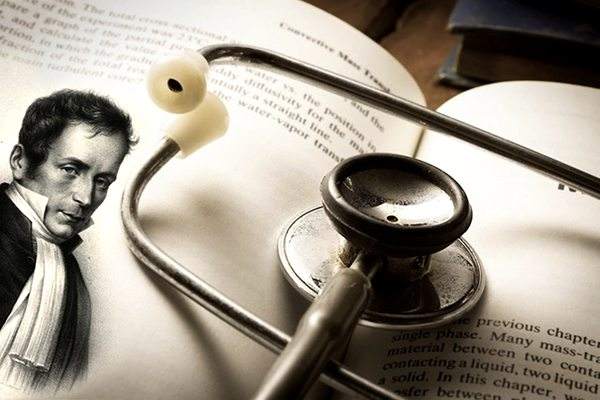In the early 1800s, a French physician named Rene Laennec had a dilemma.
19世纪初,法国内科医生雷纳-雷奈克陷入了两难。
He needed to listen to the heart sounds of a young woman with signs of heart disease.
一位有心脏病迹象的年轻女病患前来求诊,而雷奈克需要听听她的心跳。
But the only method of listening to heart sounds known to Western medicine at the time was simply to press an ear to the patient’s chest.
当时,西方医学唯一的听诊方法就是简单地将耳朵贴在病患胸部进行听诊。

Laennec just couldn’t bring himself to get that close and personal with this ample young woman.
但雷奈克不想与这位年轻、体态丰腴的女子有亲密的肢体接触。
How could he make a diagnosis?
那么他该如何诊断呢?
The story goes that Laennec grabbed a piece of paper and rolled it into a cylinder.
随后,雷奈克抓起一张纸并将其卷成圆筒状。
With the cylinder between his ear and the young woman’s chest, Laennec saved himself and his patient from embarrassment.
他将纸筒放在自己耳朵和患者胸部中间,如此两人都不会太过尴尬。
But he was also surprised to find that the heart sounds conducted through the cylinder were louder and clearer than he’d ever heard before.
就在此时他惊奇地发现,通过纸筒传来的心跳声比之前听到的更为响亮、清晰。
译文为可可英语翻译,未经授权请勿转载!












